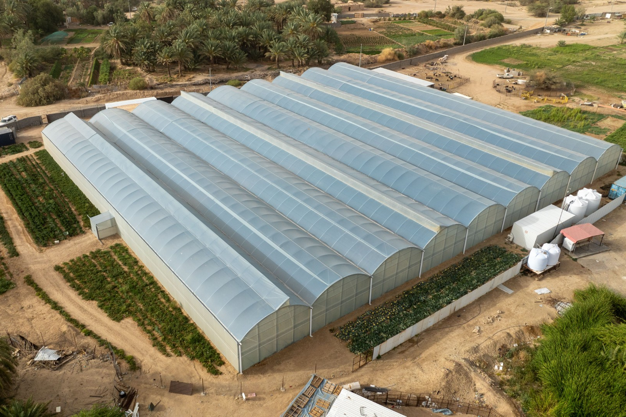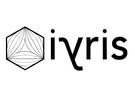iyris and Red Sea Global have together announced the National Food Production Initiative ("NFP Initiative") in partnership with other Saudi Public and Private Sector National Champions.
This NFP Initiative, bringing together Saudi-developed innovation and technologies, has regenerated unproductive agricultural land, building a 0.75-hectare sustainable farming facility in Bada, Saudi Arabia. The facility includes a greenhouse incorporating Saudi-based agriculture technology and uses a scalable model that could transform the lives of Saudi farmers, allowing them to regenerate harsh climate agriculture in regions where the impact of climate change has made cultivation increasingly challenging.
The NFP Initiative was made possible with the participation and collaboration between Saudi Arabia-based partners: SABIC, Red Sea Global, Napco National, Tamala, King Abdullah University of Science and Technology (KAUST), University of Tabuk, and Terraxy.
The project was developed with the joint objectives of supporting local farming communities to regenerate unproductive land, reinvigorating their economy, and reducing the reliance on imported produce and food miles traveled in supplying rural communities.

The NFP Initiative delivers on several key areas of the Kingdom's Vision 2030, including sustainable development goals (creating a viable model for sustainable farming); ESG goals (utilizing technology that reduces the use of resources and opens up opportunities to improve food security); capability and capacity building (raising awareness of AgriTech solutions); and contributing to a thriving economy.
John Keppler, Executive Chairperson of iyris, said: "Integration of iyris' SecondSky technologies with SABIC's Trucircle materials shows how the continued efforts of Saudi-based companies can transform the agriculture industry and benefit farmers. Bada is a case study for the local farming community and is a scalable model replicable for growing local produce."
The Bada Farm facility grows fresh produce, including tomatoes, cucumbers, chili peppers, capsicum, and soft-leaf herbs, destined for sale to Red Sea Global's resorts, complementing their continued sustainability efforts and contributing to Saudi Arabia's sustainable tourism goals.
Following the first successful trial harvest, the Bada Farm continued planting, harvesting, and delivering crops through to July 2024, extending beyond the typical growing season for the farmer. In previous seasons, all cultivation had ceased completely by early June due to heat stress and the associated operating costs of maintaining production in the hottest months.
The farm has now planted crops for a second crop season and cycle. Transplanting of seedlings started 4 weeks earlier than had been possible before the upgrades to the farm from the NFP Initiative.
The progress of the NFP Initiative to date represents a significant step towards addressing food security in the region. Saudi Arabia still has a significant reliance on imported fresh produce, as high as 85% in some product categories.
Raed Albasseet, Group Chief Environment and Sustainability Officer at Red Sea Global, commented: "Two-thirds of our planet is currently undergoing desertification. This is having a catastrophic effect on ecosystems, food security, water resources and people – especially those who make their living from the land. If no action is taken, 1.5 million km2 of agricultural land, equivalent to the entire arable land of India, will be lost by 2050. This initiative demonstrates that we can reverse the effects of climate change and regenerate ecosystems in a way that supports people and the planet. For our destinations, it has provided us with a local food supply chain, which helps reduce our carbon footprint, and meets our guests' expectations for high-quality, locally-grown food."
For more information:
iyris
iyris.com
RedSea
www.redsea.ag 
